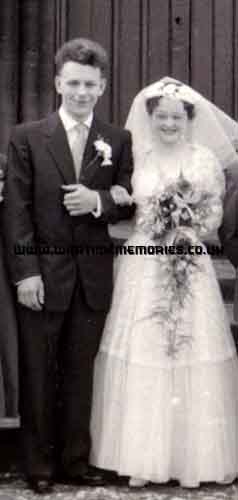Cpl. James Ambrose Atherton
British Army Royal Signals
from:Wallasey, Cheshire
My mother's father, James Atherton, was a tall, stooped old man to me. He didn't talk much and I was a bit scared of him. Everything I know is what my mother has told me. Grandad was a telephone engineer for the old UK Post Office. He had joined the Territorials earlier in the 1930s because he liked the idea of getting time off each year for training. On the day war was declared, the Territorials were the first to be called up. He was in the Royal Corps of Signals.
He was sent to France and was part of the famous 1940 Dunkirk evacuation: over eight days, 338,226 soldiers were rescued from Dunkirk by a hastily assembled fleet of boats including fishing boats, pleasure craft and lifeboats, which ferried them out to the larger ships. Mum and granny were in the local air raid shelter the night grandad got home. He got into the (locked) house somehow, wearing just a pair of overalls as his uniform had been soaked.
Next he was sent to the Western Desert (North Africa Campaign), but never said where exactly although he mentioned going to Cairo on days off (1941-42). He was laying telephone lines when a German (or Italian?) plane flew over and machine-gunned them. They lay face down and he was shot in the back, through his stomach. Of the party, he was the only survivor when the search party found them. Operating facilities were rudimentary, and with just local anaesthetic doctors opened up his stomach, cut out the sections of intestines with holes in, and stitched it all together again. Grandad recalled watching his intestines being pulled out and piled up on his chest. Not surprisingly, he developed peritonitis after this, was invalided out and took a year to recover. After this his rank was reduced to private (from corporal), and he was sent to the Pay Corps in Nottingham for the rest of the war.
We always knew that grandad had half his stomach missing, and thought that the reason he stooped was because his stomach had caved in without the intestines to fill it. We somehow knew not to ask him about the war, and being little girls we probably weren't very interested. He hated the war and never marched in veteran parades. In fact, he lent his Africa Star to another soldier who had lost his, and never got it back. Despite having asthma and liking his drink, grandad lived to the age of 78 and died in his sleep, still living with granny in Wallasey, Cheshire.
